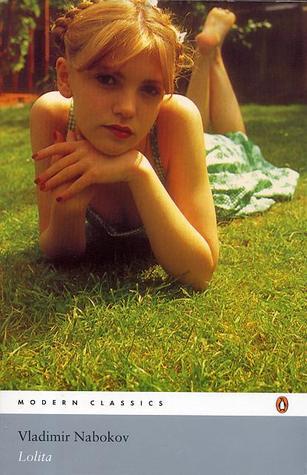Lolita, by Vladimir Nabokov
 I have not seen the Stanley Kubrick 1962 Lolita and I barely remember the 1997 one, nothing other than it starred Jeremy Irons (the roles this guy takes! :) ). I will have to watch at least one of them to see how they managed to adapt them for the ridiculous American screen sensibilities. However, even in its original book form, Lolita is not really a disturbing statutory rape story, as puritans want you to believe, as it is a situational dark comedy combined with some social satire. You can compare it with Dexter (the TV series, not the books) in the sense that it features a socially engineered villain as the hero who has to navigate the hurdles of polite society to achieve his dark goals. Only, in this case, instead of killing loads of people, he follows his heart to attain the love of his life - which is, of course, much worse, apparently.
I have not seen the Stanley Kubrick 1962 Lolita and I barely remember the 1997 one, nothing other than it starred Jeremy Irons (the roles this guy takes! :) ). I will have to watch at least one of them to see how they managed to adapt them for the ridiculous American screen sensibilities. However, even in its original book form, Lolita is not really a disturbing statutory rape story, as puritans want you to believe, as it is a situational dark comedy combined with some social satire. You can compare it with Dexter (the TV series, not the books) in the sense that it features a socially engineered villain as the hero who has to navigate the hurdles of polite society to achieve his dark goals. Only, in this case, instead of killing loads of people, he follows his heart to attain the love of his life - which is, of course, much worse, apparently.
Anyway, in a sense, that's one of the messages of the book, at least as interpreted by me. If the girl would have been of age, this would have been a romantic comedy. Instead, it's a dark exploration of disturbing behavior or whatever. The artificial nature of social constructs is exposed again and again and again in the text. In that sense, I really liked the book.
But here is where I start discussing the issues I've had with Lolita. The writing is terribly tedious. I have no doubt that Vladimir Nabokov is a great writer, however the complex words and phrases that his character uses with great verbosity to explain even the simplest of things make the read difficult and the character annoying. Yeah, I get it, he has a very inflated sense of himself, but why should I have to suffer for it? Try to listen to it in audible form and it just starts to rush by you. Try to read it from the page and the finger twitches to skip ahead to places where something else happens than the introspective thoughts of Humbert Humbert.
Personally I don't enjoy awkwardness - in myself or others, which is why I don't find situational comedies that entertaining. This book is packed with this kind of situations. Structurally, I think the first part of the book was a lot better than the second. Basically, when the going got tough, it meandered and fizzled into a rather unsatisfying ending.
To summarize: a man in his thirties with an unapologetic sexual attraction for "nymphettes" or young girls that have not yet matured into adolescents, but are not strictly speaking children, falls in love with innocent Dolores and proceeds to make rather clumsy plans to be near her and take advantage of her somehow. As we navigate the difficulties of nosy neighbors, teachers and friends, legal and social rules, luck, coincidence and a poor assessment of the situation, our hero swings wildly from knave to victim, from mad evil genius to ridiculous man, from jealous lover to loving father and then back again. The book explores the vast difference between our customs and social expectations and the state of the real world. It doesn't judge, it just describes, and that might be off-putting for some, for various reasons.
I liked the book, I think it is worth notching it off the list, but it read like an overeducated Oba Yozo or Meursault falling in love with a wild child, and the whole world made a big deal out of the story subject. I enjoyed more the underlying notes of social satire (which are exacerbated by the reaction to the book) than the actual book. In current parlance, it's like a less entertaining YouTube video on a spicy subject which results in hilarious reaction videos.
Comments
Be the first to post a comment